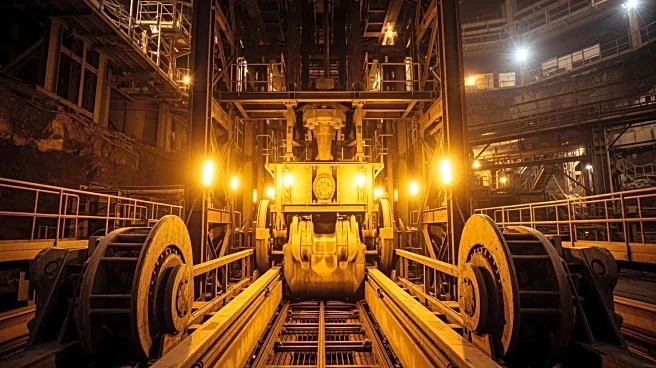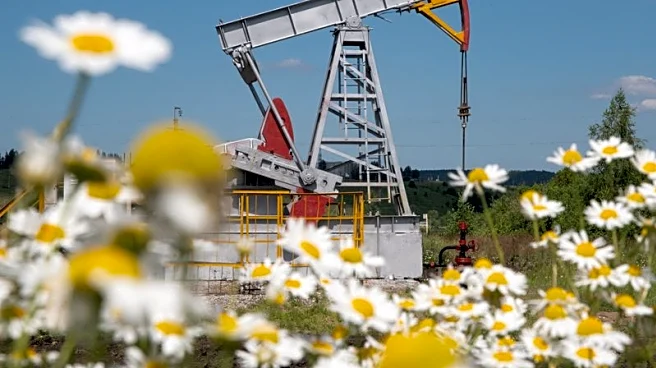What's Happening?
The African mining sector is experiencing significant challenges due to geopolitical shifts and policy changes. In 2025, the United States imposed a 50% tariff on copper imports, effective August 1, directly
affecting African exporters, particularly the Democratic Republic of Congo (DRC). Africa, rich in mineral resources, holds substantial reserves of platinum group metals, chromium, cobalt, manganese, diamonds, bauxite, copper, gold, and lithium. Despite this wealth, the industry faces infrastructure gaps, policy uncertainty, and rising operational costs. South Africa and Zimbabwe are key players in platinum production, while the DRC leads in cobalt and copper output. Efforts to address structural issues include South Africa's measures to promote domestic beneficiation and revive ferrochrome smelting, aiming to increase chromium production.
Why It's Important?
The U.S. tariff on copper imports poses a significant threat to African economies reliant on mineral exports. The Democratic Republic of Congo, a major copper and cobalt producer, faces economic pressure as tariffs could reduce export revenues and impact local mining operations. This geopolitical shift may lead to increased operational costs and policy uncertainty, affecting investment and growth in the sector. South Africa's initiatives to boost domestic production and beneficiation could mitigate some challenges, but the broader impact on African mining remains substantial. The tariff could also influence global copper prices and trade dynamics, affecting industries reliant on these minerals.
What's Next?
African countries may need to explore alternative markets and strengthen regional trade agreements to offset the impact of U.S. tariffs. South Africa's focus on domestic beneficiation and ferrochrome smelting could lead to increased local production and job creation. The DRC might seek to diversify its export portfolio and enhance infrastructure to support mining operations. Additionally, African nations could engage in diplomatic efforts to negotiate trade terms and reduce tariff impacts. The long-term sustainability of the mining sector will depend on policy reforms and investment in infrastructure to address existing challenges.
Beyond the Headlines
The U.S. tariff highlights the vulnerability of African economies to external geopolitical shifts. It underscores the need for diversification and resilience in the mining sector. Ethical considerations arise regarding the environmental and social impacts of increased mining activities. The focus on domestic beneficiation in South Africa could lead to technological advancements and skill development, fostering economic growth. However, the pressure on African exporters may exacerbate existing socio-economic disparities, necessitating comprehensive policy responses to ensure equitable growth.












